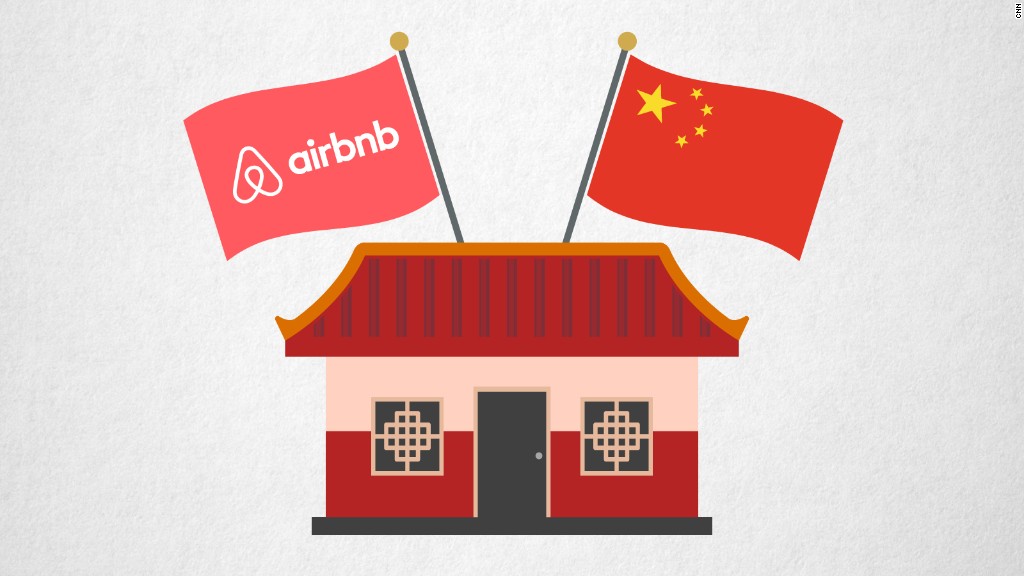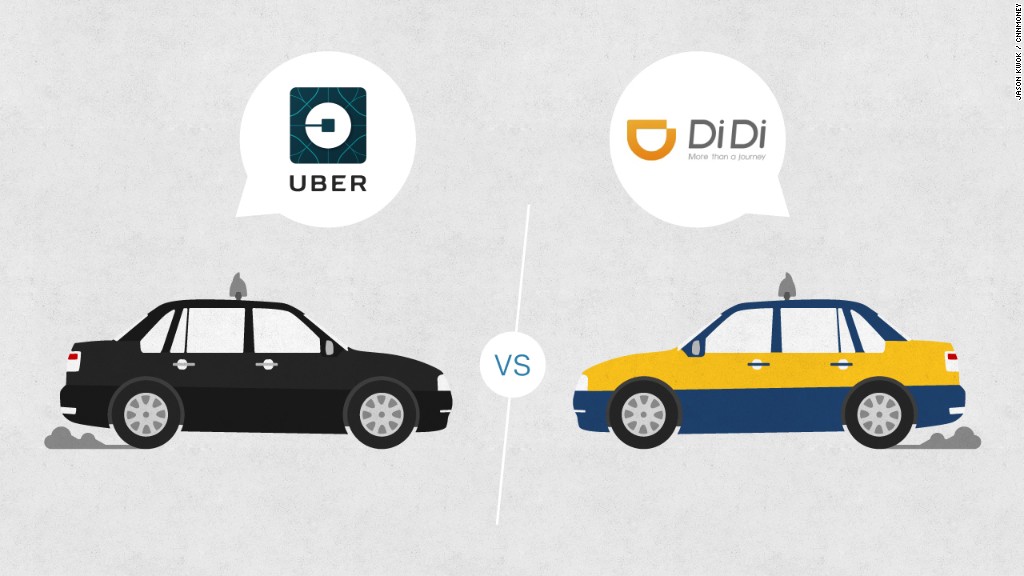

The short-term rental startup paid little attention to the world's most populous country for years. But it's now stepping up efforts to appeal to China's growing ranks of young people with money to spend on travel.
Airbnb said Wednesday it will triple its China workforce from 60 to 180 this year and double its investment in the country. The company also unveiled a new Chinese name -- "Aibiying," which roughly translates as "welcome each other with love" -- and promised a big marketing campaign to back it up.
The U.S. startup, which was recently valued at $31 billion, began quietly building up its business in China last year. It started providing 24/7 access to customer support in Mandarin, told Chinese users it will store their personal data locally to comply with Chinese laws and partnered with popular online payment platform Alipay and messaging giant WeChat.
Related: Airbnb now lets you book excursions with locals
There's just one problem -- there's already an Airbnb of China. It's called Tujia, and it's got a massive share of the market.
Like other U.S. tech giants, Airbnb has struggled in China, where copycats hit the market quickly and have an easier time navigating often burdensome regulations.
Ride-hailing startup Uber spent billions trying to make headway in the world's second largest economy, only to sell its Chinese business to rival Didi Chuxing last year.
"We learned from other companies that we wanted to take the right approach to China," an Airbnb spokesman said. "We know that localization is really important."

Tujia has staked a huge claim on its home turf, with more than 430,000 listings covering 312 cities and towns across China. Airbnb has 80,000 Chinese properties on its site, and partnerships with four big cities.
The companies are competing for a lot of potential revenue. Beijing-based firm iResearch predicts China's online vacation rental market could reach 10.3 billion yuan ($1.5 billion) this year.
Tujia already has a strong hold on Chinese travelers. Last year, it partnered with a couple major Chinese travel companies to secure their overseas rental properties. But Airbnb boasts a vast network of more than 3 million listings worldwide.
Related: Airbnb raises $1 billion in funding
Tujia president Zhuang Hai told CNNMoney in November that his company's understanding of Chinese cultural preferences gives it a big advantage over Airbnb.
For example, Chinese travelers often make trips as families, and neither hosts nor guests want to clean up after a stay, Zhuang said. To meet those needs, the company targeted larger home listings and offers cleaning services, he said.
Tujia also offers property management services because a lot of Chinese hosts aren't sharing their actual homes, but listing investment properties, Zhuang said.
Airbnb says it's banking on Chinese millennials looking for unique experiences.
On Wednesday, it also launched "Trips" in Shanghai -- a feature that allows travelers to book excursions with local residents within the Airbnb app.
In Shanghai, Airbnb users can learn about Chinese folk art and traditional opera.
CNNMoney (Hong Kong)









 Add Category
Add Category